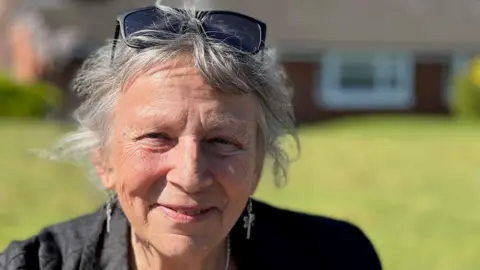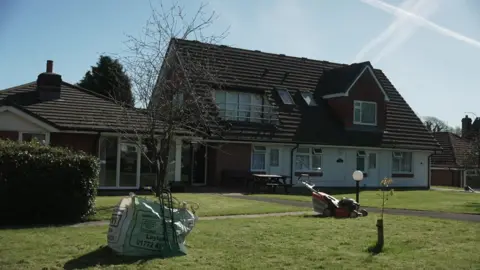'Wonderful' care villages 'at risk' – families
 BBC
BBCGovernment guidelines on where learning-disabled adults should live could deprive them of the support they need, families have claimed.
Campaign group Our Lives Our Choices, which started in Lancashire, said self-contained village-type complexes like Stanley Grange, near Preston, are being discriminated against because of a push towards living in the community.
The current guidance was brought in after the BBC exposed institutional abuse at the Winterbourne View home near Bristol.
The Care Quality Commission (CQC) denied suggestions its policies were too restrictive, adding that they would not affect existing village-type accommodation like Stanley Grange.
'Wonderful mix'
Village-type communities generally have smaller homes on a campus so residents can live more independently while still receiving the care they need.
Stanley Grange, in Samlesbury, is home to 42 adults with complex learning disabilities, owned by an organisation which includes relatives of its residents, and run by a social care community interest company.
Mike Riding, whose son John has lived at Stanley Grange for 11 years, said there were dozens of activities for his son and others to take part in.
He said: "They go bowling, they go swimming, they go out for meals, they have parties here on site, and there's a thriving walking group".
Mike said John, who is autistic and non-verbal, and finds many situations overwhelming, had been at Stanley Grange since he was a teenager.
He added: "What you have here is this wonderful mix, because it feels like family, but it's done incredibly professionally."

Anthony Spencer-Palmer, who has been at Stanley Grange for 18 years, has autism, epilepsy and dementia, and in recent years has started to use a wheelchair.
His sister Caroline said Anthony, who is in his 70s, had always enjoyed an active social life there.
She said: "It was liberated safety. He was safe here but he was able weave his way around… and he loved the social life as well. With 42 residents, he had plenty of birthdays and birthday parties".
Caroline said Anthony went out less than he used to, but still enjoyed the social aspect of village life.
"He likes to see stuff going on but might not want to be in the thick of it any more. He can dip in and out"
She added: "Other people, for instance the elderly or the over 55s can choose to live in a gated community… and that's encouraged.
"But people with learning disabilities are not entitled to that. I feel it's a total injustice."

Despite the CQC's policies on village-type facilities, Stanley Grange is rated Good overall and Outstanding for caring and its future is not in doubt.
But the CQC's current guidelines discourage larger, self-contained complexes, and it is unlikely to approve similar ones in the future.
Instead, it wants learning-disabled adults to live and be cared for in the wider community.
The policy shift came after the Winterbourne View abuse scandal, exposed by Panorama in 2011. It prompted a move away from larger institutions.
But campaigners said communities like Stanley Grange should not be penalised for the failures of large care homes.
David Wilks, the chairman of Our Lives Our Choices, which is now a national campaign group, said: "We entirely agree with moving people out of large mental hospitals… we entirely agree with the moves after the Winterbourne View report.
"But we believe that because of this position, potentially up to 40 village communities have closed over the last 15 years."
Mr Wilks, whose brother Bernard was at Stanley Grange for 35 years, added: "To lump in these types of villages with those [large care home] settings is completely nonsensical. They are completely different".
'Dignity and independence'
The group held a national conference earlier to try to persuade the government to change its policies towards village-style complexes for some learning disabled adults.
Its members argue people with learning disabilities were far happier living in places like Stanley Grange than they would be in flats in towns.
Many of the campaigners are family members who argue, for people with this level of complex disabilities, life in the wider community is less safe and more isolated than in a specialist environment.
The CQC said it would base each assessment of the most appropriate care on its merits.
It added: "It is for the provider to demonstrate how their service meets the expectations to deliver safe, effective, compassionate, high-quality care, and ensure autistic people and people with a learning disability are given the same choices, dignity, independence and good access to local communities as anyone else."
Listen to the best of BBC Radio Lancashire on Sounds and follow BBC Lancashire on Facebook, X and Instagram. You can also send story ideas via Whatsapp to 0808 100 2230.
